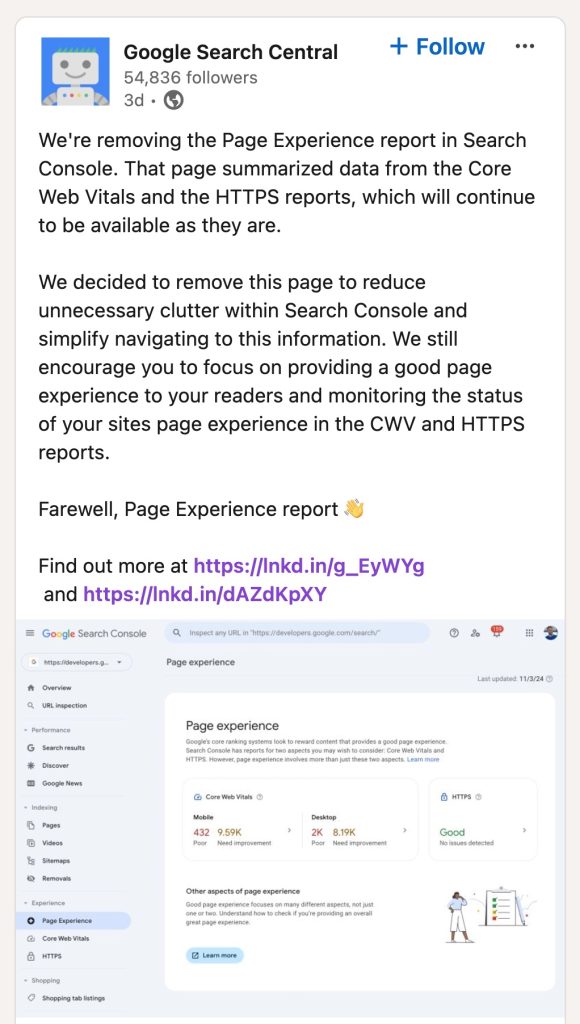
We are on the third week of the November core update and looks like all the news this week has placed it at the back of people’s minds. Especially since the update seems to be quiet and not as volatile and impactful as the last two.
With DOJs proposal on selling Chrome, sharing Google’s data to rivals, ending contracts with partners, among others, and Google’s response to them, it definitely is an eventful week. Read all about this and this week’s notable SEO news below:
On Wednesday, prosecutors argued that Google must sell its Chrome browser, share data and search results with its rivals, possibly sell Android, end exclusive contracts with Apple and other partners, plus other measures, to end its monopoly on online search.
These measures were presented by the Department of Justice as part of a landmark case in Washington against Google for its monopoly on Search and related advertising in the US.
According to the DOJ and state antitrust enforcers, “Google’s unlawful behavior has deprived rivals not only of critical distribution channels but also distribution partners who could otherwise enable entry into these markets by competitors in new and innovative ways”
U.S. District Judge Amit Mehta has scheduled a trial on the proposals for April.
Google published a blog post addressing DOJs proposal. They call the proposal a “radical interventionist agenda that would harm Americans and America’s global technology leadership.” The DOJ’s wildly overbroad proposal goes miles beyond the Court’s decision and that it would break a range of Google products — even beyond Search — that people love and find helpful in their everyday lives.
Google indicates that the extreme proposal would –
The approach would result in unprecedented government overreach that would harm American consumers, developers, and small businesses — and jeopardize America’s global economic and technological leadership at precisely the moment it’s needed most.
Google states that they will file their own proposals next month, and will make their broader case next year.
With DOJ’s proposal of selling Chrome, looks like OpenAI is taking the initiative and is considering developing their own web browser, to compete with that of Chrome. The web browser will combine its chatbot with search features, the Information reports.
OpenAI has spoken about the search product with website and app developers such as Conde Nast, Redfin, Eventbrite and Priceline, the report said, citing people who have seen prototypes or designs of the products.
Google and OpenAI is already on a head-to-head battle over AI, with OpenAIs ChatGPT and recently launched SearchGPT. Looks like there are more on the plate.
However, the report states that OpenAI is not remotely close to launching the said browser and is still under consideration. I guess we just have to wait and see what Altman and the team have under their sleeves.
In a blog post, Google announced that they have updated their site reputation abuse policy. According to the post, since they launched the policy, they have reviewed situations where there might be varying degrees of first-party involvement, such as cooperation with white-label services, licensing agreements, partial ownership agreements, and other complex business arrangements. Their evaluation of numerous cases has shown that no amount of first-party involvement alters the fundamental third-party nature of the content or the unfair, exploitative nature of attempting to take advantage of the host’s sites ranking signals.
They are clarifying their policy language to further target this type of spammy behavior and making it clear that using third-party content on a site in an attempt to exploit the site’s ranking signals is a violation of this policy — regardless of whether there is first-party involvement or oversight of the content.
The updated policy language, on site reputation abuse is –
“Site reputation abuse is the practice of publishing third-party pages on a site in an attempt to abuse search rankings by taking advantage of the host site’s ranking signals.”
They state that when they evaluate policy violations, they take into account many different considerations – they don’t simply take a site’s claims about how the content was produced at face value – to determine if third-party content is being used in an abusive way. It’s important to note that not all third-party content violates this policy. They go into detail on this in their spam policies page about what is and isn’t site reputation abuse.
They include that they have systems and methods designed to understand if a section of a site is independent or starkly different from the main content of the site. By treating these areas as if they are standalone sites, it better ensures a level playing field, so that sub-sections of sites don’t get a ranking boost just because of the reputation of the main site. Their effort to understand differences in sections of sites can lead to traffic changes if sub-sections no longer benefit from site-wide signals. This doesn’t mean that these sub-sections have been demoted or are in violation of their spam policies. It means they are measuring them independently from the main page, even if they are located within a site.
Read more about the blog post here and it is definitely a must to familiarize ourselves with the updated policy at here.
Google announced in Linkedin that they are removing the Page Experience report in Search Console to remove unnecessary clutter, and simplify navigation. However, this does not mean that page experience is not important anymore, they still encourage sites to focus on providing a good page experience to visitors.
You can still monitor the status of your sites page experience in the Core Web Vitals and HTTPs reports.
